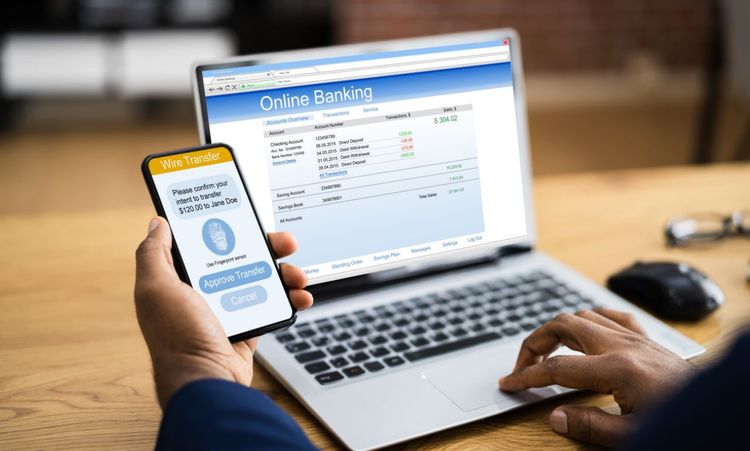Renting feels simple until the bill rises again. The renewal notice arrives, and suddenly the number climbs without warning. It can shake your confidence, especially when your paycheck stays the same. Many renters feel that pressure each year. It becomes a cycle that wears people down.
Buying a home looks intimidating at first glance. The forms, the questions, the terms—none of it feels light. Yet something important happens when you look closer. You start to notice the long stretch, not just the next month. Homeownership shifts the story. Instead of paying for someone else’s asset, you begin building your own.
This article breaks down eight reasons to stop renting and finally buy a home. Nothing fancy here—just clear explanations, short sentences, and practical insight. If you want stability, these ideas might help you decide. One reason may speak louder than the rest. Or maybe all of them point you toward a fresh start.
Homeownership Is a Better Long-Term Investment
Introduction to Long-Term Value
Rent money leaves your hands fast. You get shelter, yet nothing remains afterward. There is no return, no long-term gain, and no financial cushion created. That becomes obvious after a few years. You may even feel stuck when rents keep climbing.
Homeownership works differently. Every mortgage payment chips away at what you owe. Your home becomes a growing asset, not just a living space. When values rise, you benefit instead of struggling to keep up. That shift brings a sense of control that renting rarely offers.
Think of it like stacking bricks. Each payment adds another layer of stability. Over time, the pile becomes meaningful. You end up with something you can use later. Maybe you sell. Maybe you borrow against the equity. Either way, you own the value you built.
Renting cannot match that. It covers today. It does nothing for tomorrow. Buying a home begins a long-term investment with lasting rewards.
Interest Rates Are Historically Low
Introduction to Current Mortgage Conditions
Interest rates jump around like weather. Some years they rise fast. Other years they stay almost quiet. When they dip, buyers gain a real advantage.
Lower rates reduce your monthly payment. They also stretch your budget further than you expect. A rate change of even one point can shift what you qualify for. People often miss this detail. It matters more than the price on the listing.
A fixed low rate sticks for the entire loan. That means a stable future payment. You protect yourself from sudden hikes, which often hit renters. You also save a surprising amount over the whole loan. The long-term savings can reach levels renting never touches.
Renters feel the squeeze when rates influence rising housing demand. Buyers benefit instead. The opportunity to lock in a good rate may not last forever.
Down Payments Can Be as Little as Zero Dollars
Introduction to Modern Loan Options
Many renters still believe a huge down payment is required. That idea stays alive even though lending rules changed years ago. Several programs today offer small or even zero-down options. These programs exist to help buyers who can afford payments but lack big savings.
This opens the door for people who assumed ownership was impossible. You do not need to save for a decade. You do not need a massive lump sum. You only need to qualify for the right program.
Zero-down loans help buyers move faster. They allow people to escape annual rent hikes sooner. It can feel surprising when a lender explains the numbers. Many realize the payment is close to their rent. Sometimes it is even lower.
Renting has no programs like that. Every cost is out of pocket with no return. Home loans offer choices instead of obstacles.
Gift Money Can Be Used as a Down Payment
Introduction to Family Support Options
Some families like to help with home purchases. Gift money has become common, especially among first-time buyers. Many lenders accept gift funds as part of the down payment. They only ask for a simple letter.
This support can ease major stress. A family member may offer money that you never need to repay. You bring less cash to closing, and the process becomes smoother. Buyers often reach the finish line faster when help is available.
Gift funds can also help buyers qualify for better loan terms. A larger down payment may improve your options. Even a small gift makes a difference.
Renters cannot use gift money in a meaningful way. It disappears once rent is paid. When used toward a home, though, it becomes part of a long-term asset.
Gain Equity as Property Values Continue to Rise
Introduction to Equity Growth
Equity works like a slow but steady engine. It grows as you make payments and as the home’s value rises. Many communities see regular appreciation, especially areas with strong jobs and steady growth.
When values increase, homeowners gain. Renters feel the opposite. Rising values often bring higher rent prices. That pressure makes long-term planning difficult.
Owning a home puts you on the winning side of rising values. Even modest appreciation adds up over the years. The equity becomes a resource you can use later. People often tap it for renovations, emergencies, or education costs.
The process feels simple. You live in your home. You pay your mortgage. Meanwhile, the property works quietly in your favor. That advantage grows every year.
Higher Loan Amounts
Introduction to Borrowing Power
Home prices feel high in many areas. Renters worry they cannot borrow enough to compete. Loan limits, though, have increased in many programs. Lenders understand modern housing costs. They adjust their limits to match real conditions.
Higher limits give buyers more room to explore. You can consider homes that fit your lifestyle instead of settling for something that barely works. This flexibility helps buyers feel confident.
Your borrowing power depends on income, credit, and the loan type. A lender reviews those pieces and shows realistic numbers. You can then shop without guessing. Renting offers no such clarity. Rent prices change without notice, often with little explanation.
Borrowing more does not mean overspending. It simply expands your choices. It lets you pick a home that supports your long-term plans.
Predictable Monthly Payments
Introduction to Stability and Planning
Rent payments rarely stay the same. One year it rises a little. The next year it jumps. That unpredictability wears on your budget. It is hard to plan when the cost keeps shifting.
Mortgage payments are different. A fixed-rate loan keeps your principal and interest steady. You know what each payment will be, month after month. That stability makes planning easier.
Predictable payments also reduce stress during uncertain times. You are not waiting for a rent increase. You stay in control because your housing cost remains stable.
Another benefit comes from freedom. Owners choose how they maintain or improve their homes. Renters remain limited by rules that often ignore personal needs. Predictable payments and personal control create a solid foundation for daily life.
Bring In Extra Income by Renting a Room
Introduction to Income Potential
Some homeowners cut their expenses by renting out a spare room. This approach has become common in busy cities. It helps cover costs and even reduces the mortgage burden.
A close friend once did this after buying her first home. She rented a room to a traveling medical worker. The extra income covered part of her mortgage. It gave her breathing room during a tough year. That experience showed how useful this strategy can be.
Renting a room requires simple planning. You check local rules and set clear expectations. Once that is in place, it works smoothly for many people.
This income creates security. You gain flexibility during lean months. It also turns your home into an asset that supports you in practical ways.
Conclusion
Renting may feel comfortable, but it does not build anything for your future. These eight reasons highlight what ownership can offer. Stability grows. Equity forms. Payments remain steady. Opportunities appear.
Think about where you want to be in five years. Will renting still support that vision? Or would buying a home move you closer to long-term stability? You may not feel ready, yet the idea might be worth exploring.
If the thought of owning feels overwhelming, start with one question: what would change if you paid yourself instead of a landlord? That question has helped many renters take their first step. You might find it helpful too.




